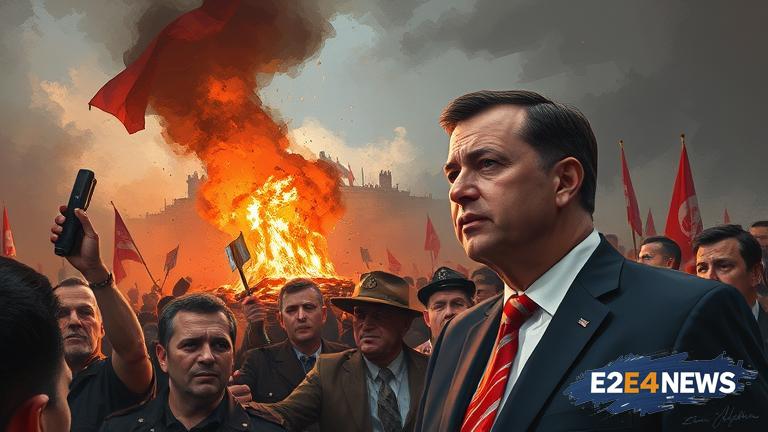The recent riots in Serbia have put President Aleksandar Vucic in a difficult position, as he is compelled to take a hard stance to restore order and maintain stability in the country. The unrest, which has been ongoing for several days, has resulted in clashes between protesters and police, with reports of injuries and property damage. The situation has sparked concerns about the potential for further escalation and the impact on the country’s economy and international relations. Vucic, who has been in power since 2017, has faced criticism for his handling of the crisis, with some accusing him of being too soft on the protesters. However, others have praised his efforts to engage in dialogue and find a peaceful resolution to the conflict. The riots are believed to have been sparked by a combination of factors, including economic hardship, corruption, and a sense of disillusionment with the government. The protesters, who are largely made up of young people, are demanding reforms and greater accountability from the authorities. The situation has been further complicated by the involvement of extremist groups, who have been accused of instigating violence and undermining the peaceful nature of the protests. The international community has been watching the situation closely, with the European Union and other organizations calling for calm and restraint. The United States has also weighed in, urging the Serbian government to respect the rights of protesters and to engage in constructive dialogue. Despite the challenges, Vucic has vowed to do everything in his power to restore order and stability to the country. He has announced a series of measures aimed at addressing the underlying causes of the unrest, including economic reforms and anti-corruption initiatives. The government has also established a commission to investigate the violence and to hold those responsible accountable. However, the opposition has expressed skepticism about the government’s commitment to reform, and has called for more radical action to address the country’s deep-seated problems. The situation remains volatile, with protests continuing to take place in cities across the country. The police have been criticized for their heavy-handed response to the protests, with reports of excessive force and human rights abuses. The government has denied these allegations, but has acknowledged that mistakes may have been made. As the situation continues to unfold, it is clear that Vucic faces a difficult task in balancing the need to maintain order with the need to respect the rights of protesters and to address the underlying causes of the unrest. The international community will be watching closely to see how the situation develops, and whether Vucic is able to find a way to restore stability and promote lasting change in Serbia. The country’s future depends on it, and the consequences of failure could be severe. The economy is already beginning to feel the effects of the unrest, with businesses suffering and investment drying up. The tourism industry, which is a significant contributor to the country’s economy, has also been impacted, with visitors canceling their trips and opting for alternative destinations. The situation is a major test for Vucic and his government, and will likely have a significant impact on the country’s future. It remains to be seen whether Vucic will be able to rise to the challenge and find a way to restore stability and promote lasting change in Serbia.
